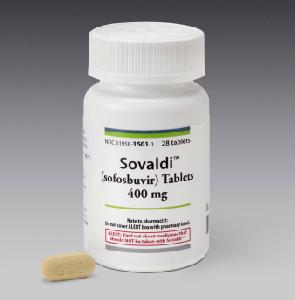 The drug Sofosbuvir, for the treatment of hepatitis C, produced by Gilead Sciences, will not be subsidized by the Australian government, due to its costs. The Pharmaceutical Benefits Advisory Committee (PBAC) announced that the costs of the drug were too high, and that they will review the decision within a year, expecting that the company will reconsider its price. Even though there are physicians who already showed their disapproval about the decision, the Australian government has granted therapeutic alternatives.
The drug Sofosbuvir, for the treatment of hepatitis C, produced by Gilead Sciences, will not be subsidized by the Australian government, due to its costs. The Pharmaceutical Benefits Advisory Committee (PBAC) announced that the costs of the drug were too high, and that they will review the decision within a year, expecting that the company will reconsider its price. Even though there are physicians who already showed their disapproval about the decision, the Australian government has granted therapeutic alternatives.
“The costs were too high to treat Australia’s 250,000 Hepatitis C sufferers,” explained a representative from the PBAC in a recent news release. However, the decision was not well received among all of the healthcare professionals, and the director of gastroenterology at Sydney’s Liverpool Hospital, Miriam Levy, has already stated that she believes it “delivered a death sentence to up to 50,000 Australians who would die from the disease in the next few years.” “While 80 % of Australia’s sufferers can probably afford to wait a few years until cheaper treatments become available, those who were already heading towards liver failure need the treatment now,” she added.
In order to subsidize Sofosbuvir, the Australian government would have to invest approximately $4 billion, covering the 50,000 HCV patients living in the country. However, the government stated that it is not possible, and Greg Bennett from CBCD, a company that manufactures natural HCV therapies Novirin and Gene-Eden-VIR, questioned Dr. Levy’s criticism, wondering “where this money will come from? Since the health budget is limited, how many other patients will have to die so that Dr. Levy can save these 50,000 patients? Every decision is a trade-off. Something Dr. Levy fails to understand.”
However, the position is not consensual, and Andrew Hill, author of the recent study “Minimum costs for producing Hepatitis C Direct Acting Antivirals, for use in large-scale treatment access programs in developing countries,” believes that “if the current high prices continue, it is likely that very few people will be treated. It is only by lowering the prices, and treating more people, that there could be a real change.”
“The price of Gilead’s hepatitis C treatments reflects the significant clinical, economic, and public health value of these drugs, and is comparable to, or in many cases less than, the cost of older, less effective regimens,” Gilead stated about their anti-hepatitis drugs, in a commentary to a new report that revealed that there are several patients who don’t have access to drugs because of its costs. The study concluded that even though there are other drugs that are more efficacious and safer, only patients with severe liver damage have access to them, while a number of patients with hepatitis C do not qualify for it.
